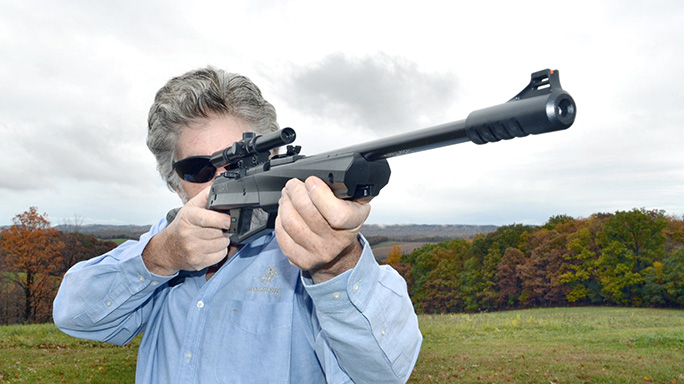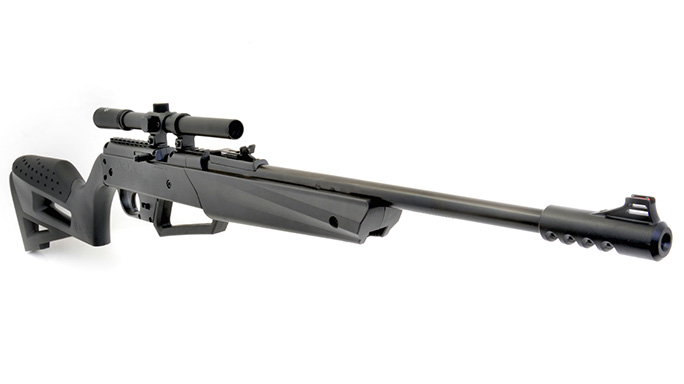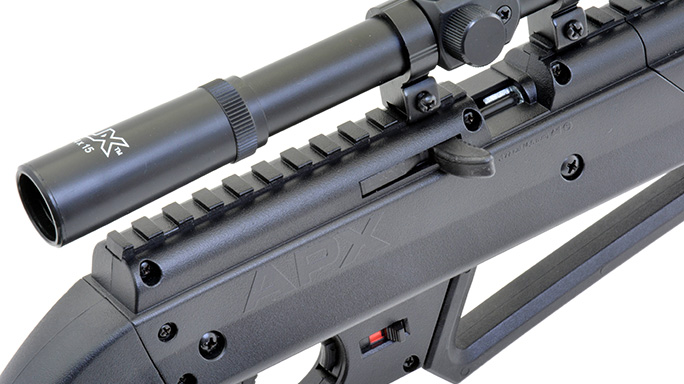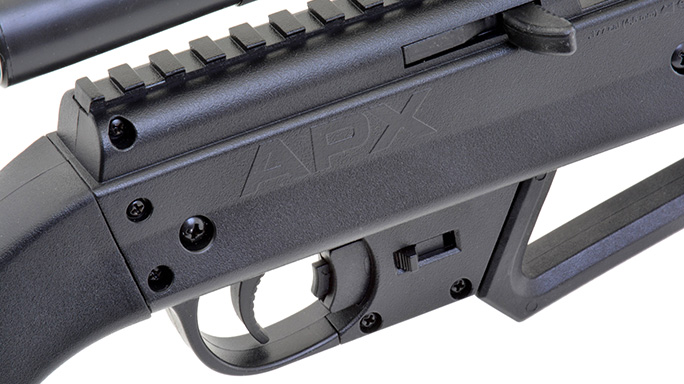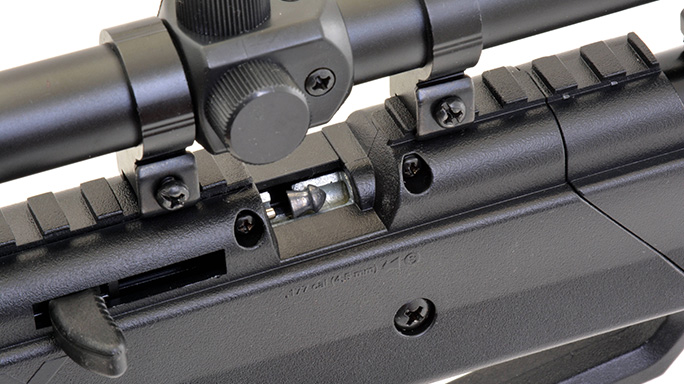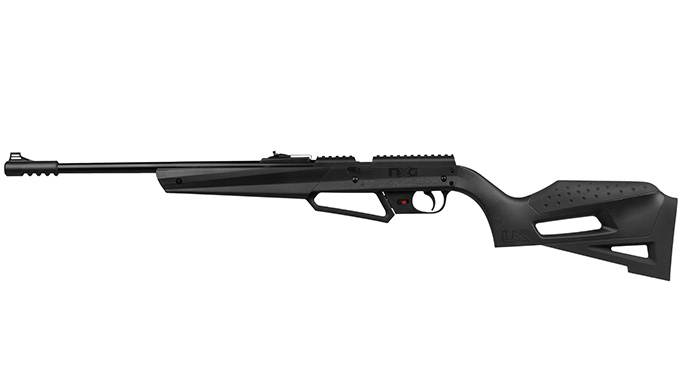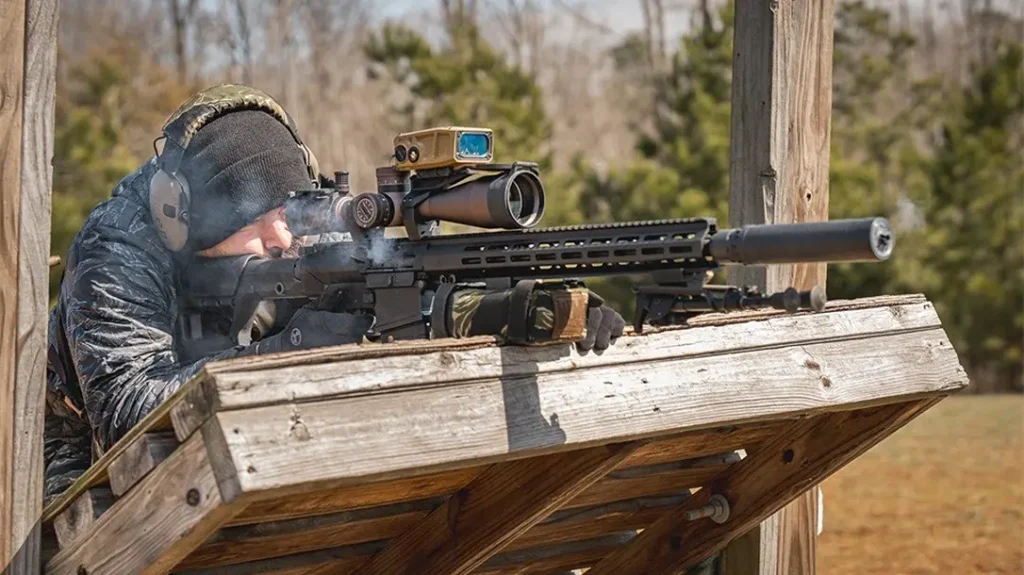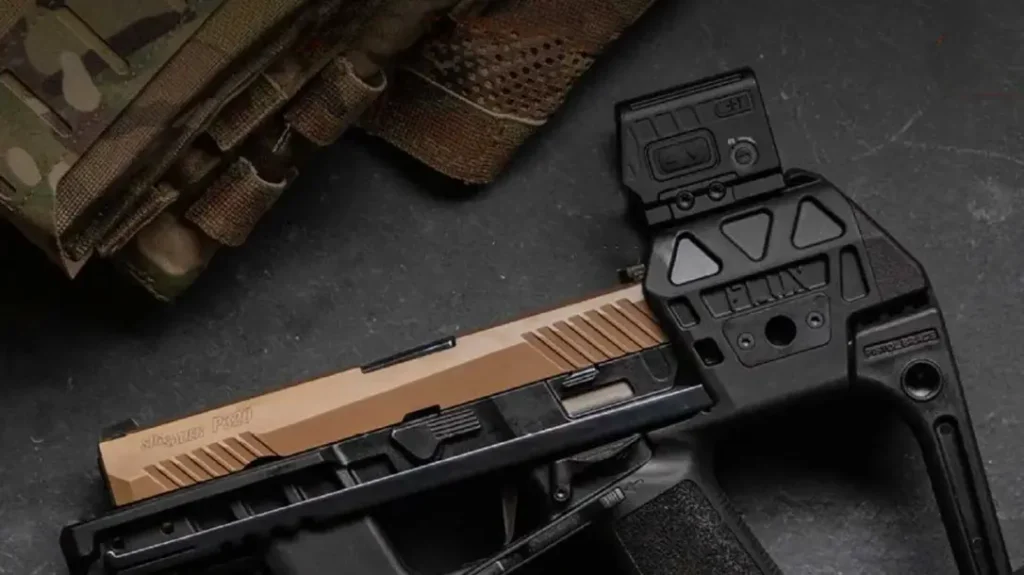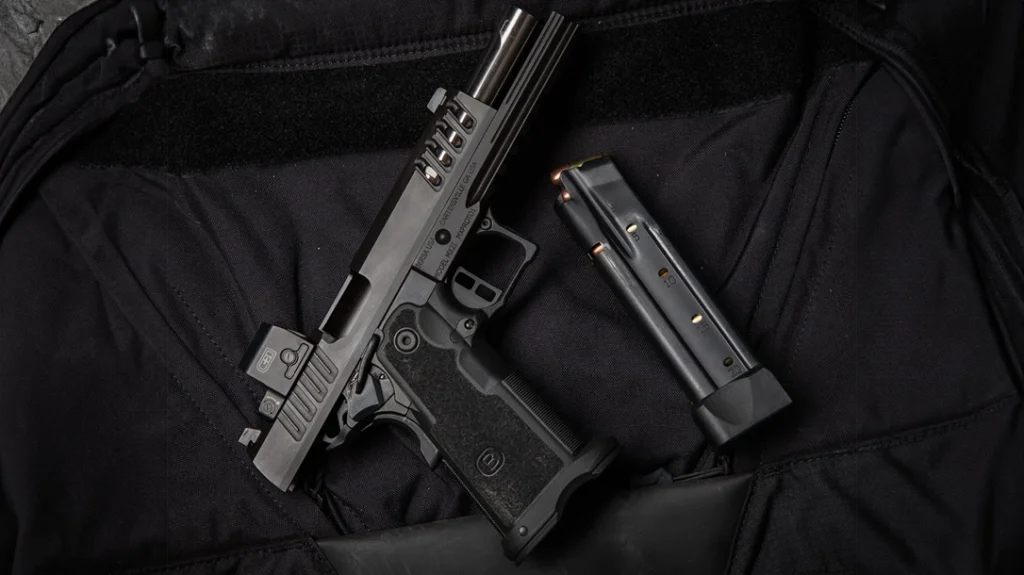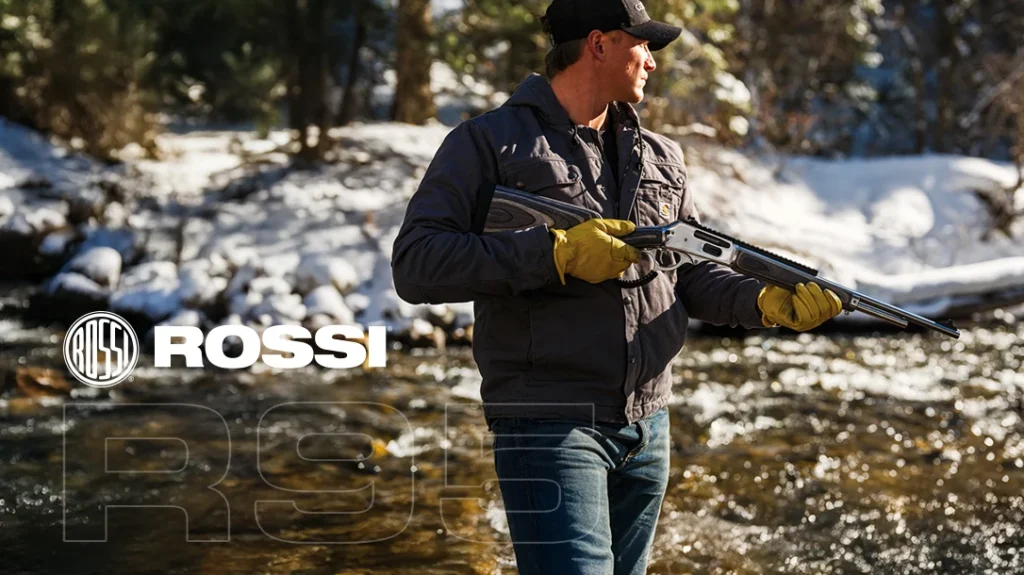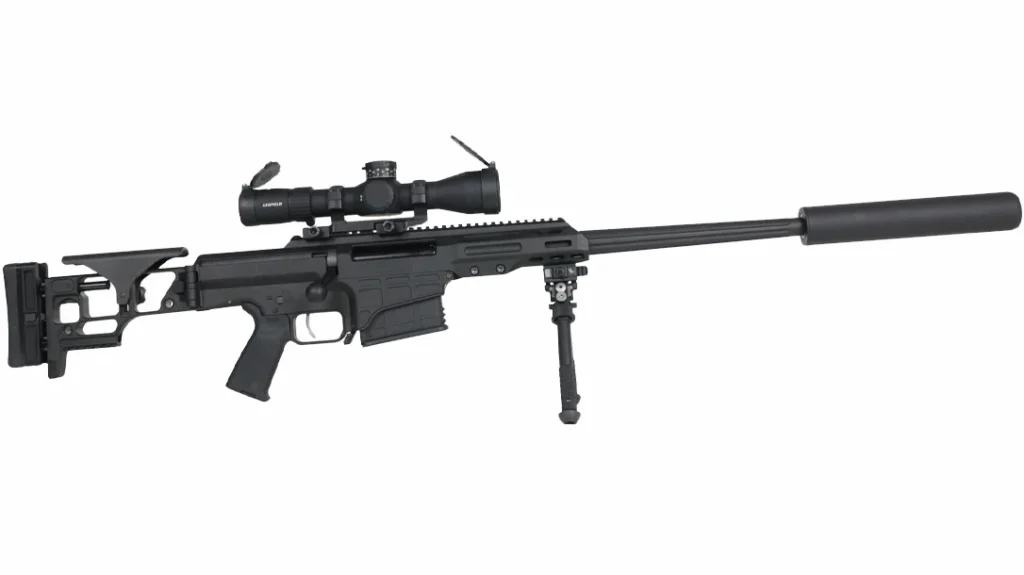People are often surprised to discover that air rifles are among the oldest multiple-shot firearms in the world.
Intended as serious hunting guns, they were mostly large-bore arms resembling a flintlock in design and chambered to fire lead balls ranging in size from .30 to .75 caliber. One of the most famous of these early air rifles was carried by Captain Meriwether Lewis from 1803 to 1806, during his expedition of the Pacific Northwest with Lieutenant William Clark. The original journals of Lewis & Clark’s Corps of Discovery contain 19 references to this air gun. The .46 caliber Girandoni air rifle was built in Philadelphia by Isaiah Lukens and resembled a Kentucky long rifle fitted with a buttstock-shaped air reservoir. These primitive large-bore air rifles were very expensive and complicated to manufacture.
- RELATED STORY: Umarex’s Ultra-Silent Octane .177 Plinker
In the late 19th century more practical and affordable spring-piston pump-action air rifles were developed, the most famous being the Daisy introduced in 1888. This was a delightful, tiny, muzzle-loading, all-metal, spring-piston air rifle with a wire stock. Considered the “holy grail” of Daisy air rifles by collectors, an original in working condition can command more than $8,000 on the market.
Advertisement — Continue Reading Below
Early 20th century air rifles used either pump action (like a pump shotgun forearm) or a lever (like a Winchester) to charge the gun and fire .177 caliber BBs. That fundamental design has not changed in more than a century for traditional air rifles, which makes the new Umarex Next Generation (NXG) APX the latest improvement to one of history’s most successful firearms designs.
Next-Gen Air
New for 2015, the NXG APX represents an evolution in modern air rifles. Although intended as a youth air rifle, it is no less suitable for adults. The NXG APX redefines the standard for airgun design with small-framed shooters in mind by incorporating a multitude of modern-day features found on cartridge-firing rifles, including an automatic safety, a feature never before seen on a pneumatic rifle of this type. Another unique feature of the air rifle is that it can fire traditional steel BBs as well as .177-caliber pellets. It also sports a progressive stock design that’s ergonomically engineered, well balanced, easy to hold and constructed of impact-resistant, injection-molded plastic. That also means the NXG APX is light in weight at just 3.4 pounds. With an overall length of 39 inches, a 20-inch rifled barrel and a moderate length of pull measuring 14.25 inches, this is a very well thought out and modern-looking multi-pump lever air rifle.
Advertisement — Continue Reading Below
Shouldering the NXG APX reveals a good balance in the hand with its narrow, curved pistol grip design, which allows better control of the rifle. The multi-pump lever action is larger and easier to operate than a Winchester-style action lever, and the rifle has an easy-load pellet ramp designed for either right- or left-handed shooters. The air rifle can send pellets downrange at impressive velocities up to 800 fps at maximum air charge, or 10 pumps of the action lever.
The adjustable rear sight easily picks up the red fiber-optic front sight mounted on top of the gun’s sleek muzzle brake. In sighting with either open sights or a scope, the rifle’s ergonomic shoulder stock and rubber-textured comb allow for a very comfortable and solid cheekweld. Another modern feature is an integral, top-mounted scope rail. In fact, the NXG APX kit comes with an Umarex 4×15 scope! The rail provides a positive lock to keep the scope on zero once it’s dialed in. All of these features combine to make shooting the NXG APX a target-busting experience for shooters of all ages.
Pump It Up
Advertisement — Continue Reading Below
The Umarex NXG APX is very intuitive in its layout. For example, the safety located on the side of the triggerguard
housing is ambidextrous and can be manually set to “safe” with the trigger finger by simply pulling it back. It also automatically sets to “safe” with the first pump of the action lever. The back of the safety protrudes into the triggerguard and can be released by pushing it forward with the trigger finger. BBs are loaded from a covered port on the left side of the receiver (up to 75 steel BBs) while .177 caliber pellets are loaded individually at the breech by pulling back the bolt on the right side of the receiver.
Our test gun came with the complete NXG APX shooting kit package, which includes the 4x15mm scope, a pair of shooting glasses, one bottle of 1,500 steel BBs, a tin of 500 RWS Sport Line precision training .177 caliber pellets and, just for a taste of the old days, a couple of tin cans to shoot at!
Advertisement — Continue Reading Below
To prepare the NXG APX for firing, you must first open the bolt. The desired velocity/range is determined by the number of pumps. For the traditional 10-meter shooting distance, Umarex recommends four to six pumps. Beyond 10 meters, seven to 10 pumps are recommended. With the bolt open, firing BBs requires that the muzzle be angled at a minimum of 45 degrees with the front sight pointed up. A single BB will automatically be deposited into the loading channel and chambered when you close the bolt.
Average trigger pull on the test gun measured 7.5 pounds on a Lyman trigger-pull gauge (a low of 6.15 to a high of 8.26 pounds.). For the range test, I opted to shoot open sights at 10 meters using a Birchwood Casey Big Burst orange target and 10 pumps of the action with RWS .177 caliber pellets. The action lever does not take an excessive amount of strength to operate, though it’s no lightweight either. The open sights are easy to acquire and the red fiber-optic front is a dandy in almost any amount of light. The included scope is a very basic one and does an adequate job, but it is not much better than open sights. With the integral rail, however, a better-quality scope or optics can be used to fine tune accuracy, although the real fun with the NXG APX is banging away at paper and tin cans with open sights.
- RELATED STORY: Top 12 Air Rifles From Gun Buyer’s Guide 2015
While BBs are fun to shoot with moderate accuracy, groups averaged 3 to 4 inches, with good quality pellets like RWS, once you have the sight picture down, the APX can maintain a pretty tight pattern at 10 meters. I was able to consistently shoot 10-round groups averaging 1.625 inches inside the 10 and X rings of the Big Burst target. And from 10 meters, I put 10 pellets into the tin cans that came with the NXG APX package, all under 1.5 inches. How much fun can you have for $80? All you want with the Umarex NXG APX, a tin of .177 pellets and a couple of ol’ tin cans. It makes you feel like a kid again!
Advertisement — Continue Reading Below
For more information on the NXG APX, visit umarexusa.com.
This article is from THE COMPLETE BOOK OF GUNS 2016. To order your copy, please visit PersonalDefenseWorld.com.
